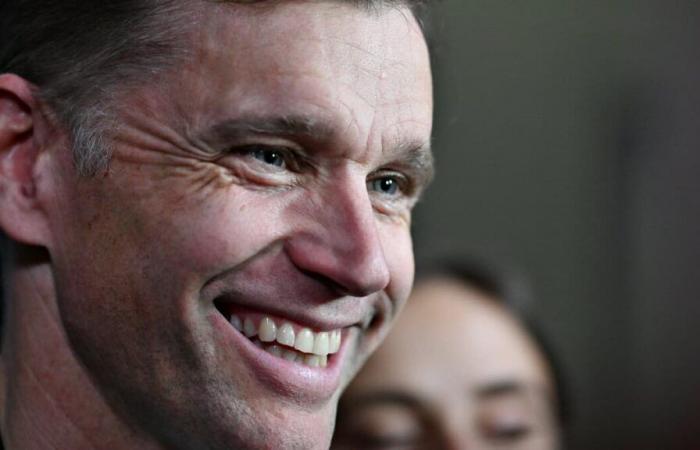An elected official driven by a vision and proud of the achievements that bring it to fruition would make it a duty to present his assessment to the population, one year before the municipal elections. This is not in the plans of Bruno Marchand who, for three years, has refused to take part in this exercise.
The mayor prefers to talk about the future and what is to come, his office argued during each request for an editorial interview at the end of the year or before the summer vacation.
Even today, Bruno Marchand decided to avoid taking stock, to talk instead about his vision for the coming years. He is focusing on the quality of life of citizens during the launch of his electoral pre-campaign.
The reality is that, when we write it down in the history of Quebec, its results for the first three years pale in comparison to this day.
Major projects
Upon his arrival, Mayor Jean-Paul L’Allier, hailed as a visionary and a builder who transformed his city, began working on the revitalization of the Saint-Roch district.
To do this, Mr. L’Allier succeeded in rallying higher governments, the cultural community, entrepreneurs, as well as public and educational institutions to his cause.
He even invited Prime Minister Jacques Parizeau and his wife to a walk with him in the neighborhood to explain his vision and the needs. He had thus convinced him to install ÉNAP in Saint-Roch rather than in Montreal.
This major project has had considerable positive impacts in Quebec.
Financial framework and infrastructure
As for Régis Labeaume, upon taking office in 2007, he got the 400th festivities back on track.emaking it a huge success.
Then he immediately set about putting in place a solid financial framework. The City has thus regained control of the debt and set up reserves for foresight and cash payment for fixed assets.
This framework, which is fortunately still in place, has made the City’s budgets more predictable, which is a very good thing.
As early as 2009, Mr. Labeaume announced his intention to build a covered ice ring and an amphitheater. Both places are very busy today and are the pride of the citizens.
Throughout his reign, Régis Labeaume also made it his duty to highlight and recognize the work of his predecessor. Bruno Marchand did the opposite, and not always for the right reasons or by listening to the right people.
Quest for concrete actions
Since his arrival, there has certainly been a change in tone which was desirable. But Bruno Marchand has still not been able to translate his speeches inspired by concrete actions that make a real difference, such as for homelessness and the tramway.
In the case of homelessness, the legacy of Jean-Paul L’Allier, with the revitalization of the Saint-Roch district, is undermined by the absence of lasting solutions. Responsibility is shared between governments and the City, of course, but the mayor promised zero homelessness during the election campaign. We are far from the mark.
The tramway, which Mr. Marchand had the good sense to support, constitutes one of these social projects on which he could have built. However, he did not manage to increase membership, as promised, nor to improve the project. On the contrary, we returned to the version proposed by Mr. Labeaume.
Blinded by vanity, Bruno Marchand believed he could do better than his predecessor with the CAQ. He hit his nose and the file even fell from his grasp.
Announcing cycle paths and the development of trails and green spaces is very good, but it comes down to the day-to-day management of a city. This is not what we could call a social project that makes the people of Quebec proud.
We must highlight the mayor’s efforts in terms of housing, but the problem remains glaring.
Position yourself in Quebec
In his departure message published on Facebook, Thomas Gaudreault, the mayor’s former press secretary, made a comment revealing a certain disconnection at City Hall.
“Positioning this man on the national and international scene will have been one of the greatest challenges of my young career,” he wrote.
A mayor’s goal should be, first and foremost, to position himself in his own city. It is his citizens that he represents. The rest happens naturally, when you enjoy significant political weight at home.
Certainly, Mr. Marchand is appreciated on the talk shows of the metropolis, where journalists do not follow him on a daily basis.
But in Quebec, the most recent polls give him very low support from citizens. The hill looks decidedly difficult to climb within a year.






